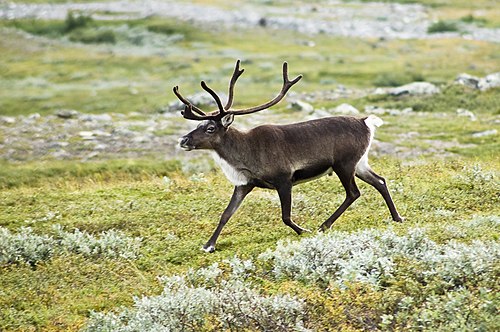Elknoun
(originally) Any large species of deer such as red deer, moose or wapiti.
Elknoun
The subspecies of the moose (Alces alces alces, alternatively named Eurasian elk because the wapiti is also called elk) that occurs only in Europe and Asia (not to be confused with the species called moose {Alces alces} which encompasses all subspecies of the moose).
Elknoun
(British) The largest member of the deer family (Alces alces); a moose.
Elknoun
(North America) The common wapiti (Cervus canadensis); the second largest member of the deer family, smaller only than a moose.
Elknoun
A large deer, of several species. The European elk Alces alces (formerly Alces machlis or Cervus alces) is closely allied to the American moose. The American elk, or wapiti (Cervus Canadensis) the largest member of the deer family, has large, spreading antlers and is closely related to the European stag. See Moose, and Wapiti.
Elknoun
The European wild or whistling swan (Cygnus ferus).
Elk
a member of the fraternal organization named Benevolent and Protective Order of Elks, supporting various services to their communities.
Elknoun
large northern deer with enormous flattened antlers in the male; called elk in Europe and moose in North America
Elk
The elk (Cervus canadensis), also known as the wapiti, is one of the largest species within the deer family, Cervidae, and one of the largest terrestrial mammals in North America, as well as Central and East Asia. It is often confused with the larger Alces alces, which is called moose in North America, but called elk in British English, and related names in other European languages (German Elch, Swedish älg, French élan).
Caribounoun
Any of several North American subspecies of the reindeer, Rangifer tarandus.
Caribounoun
The American reindeer, especially the common or woodland species (Rangifer Caribou).
Caribounoun
arctic deer with large antlers in both sexes; called reindeer in Eurasia and caribou in North America

















































